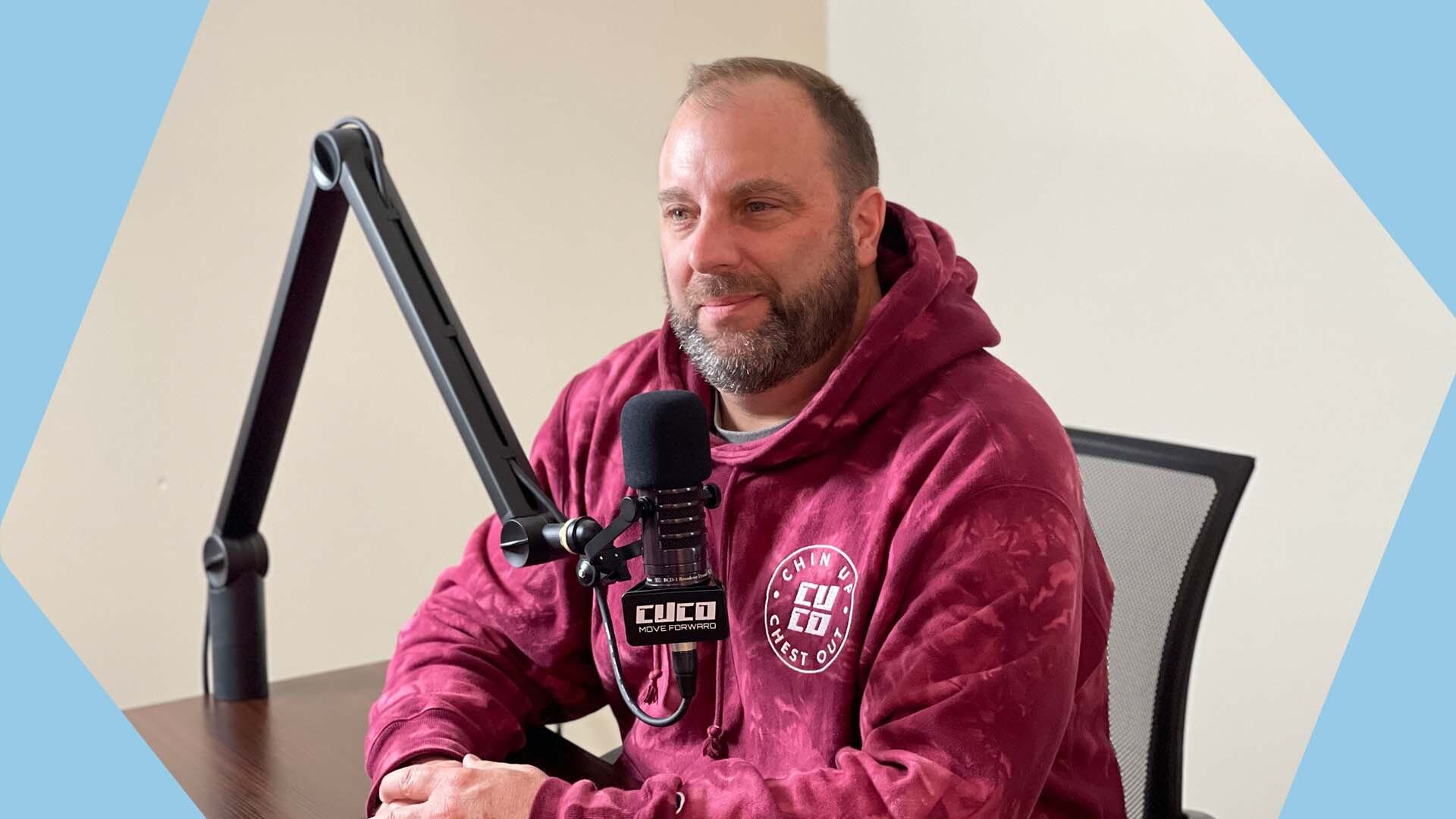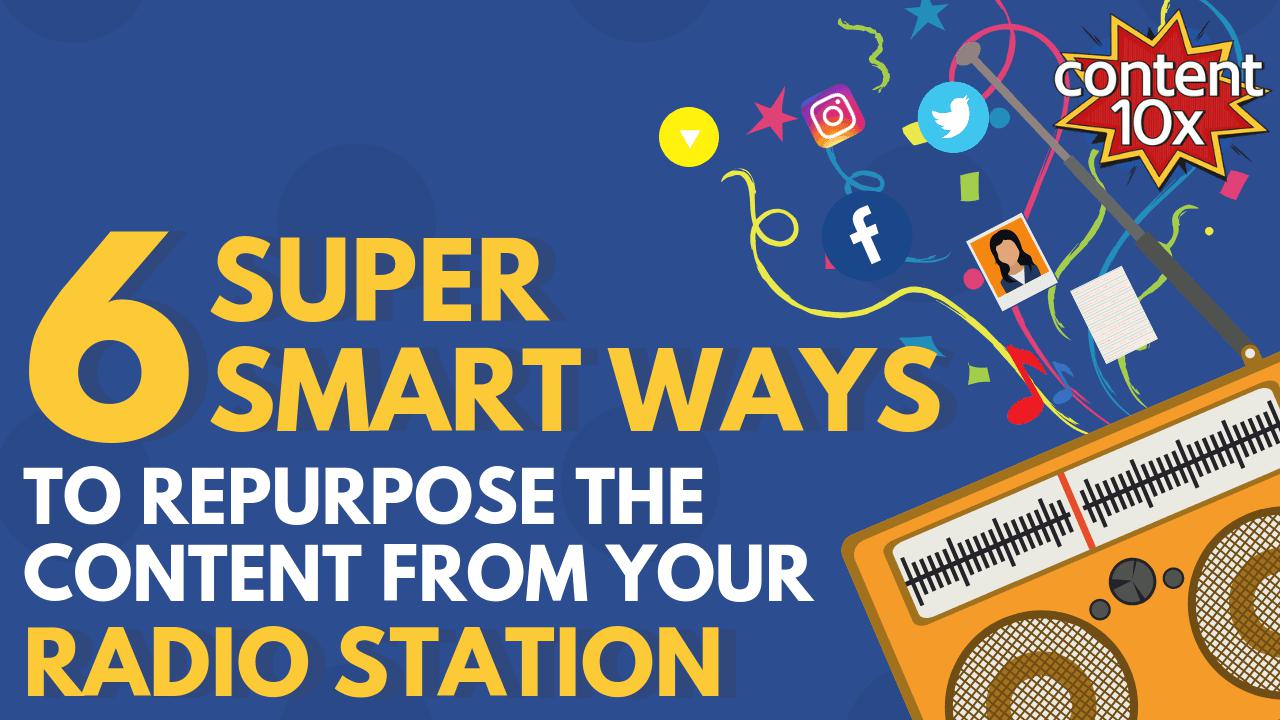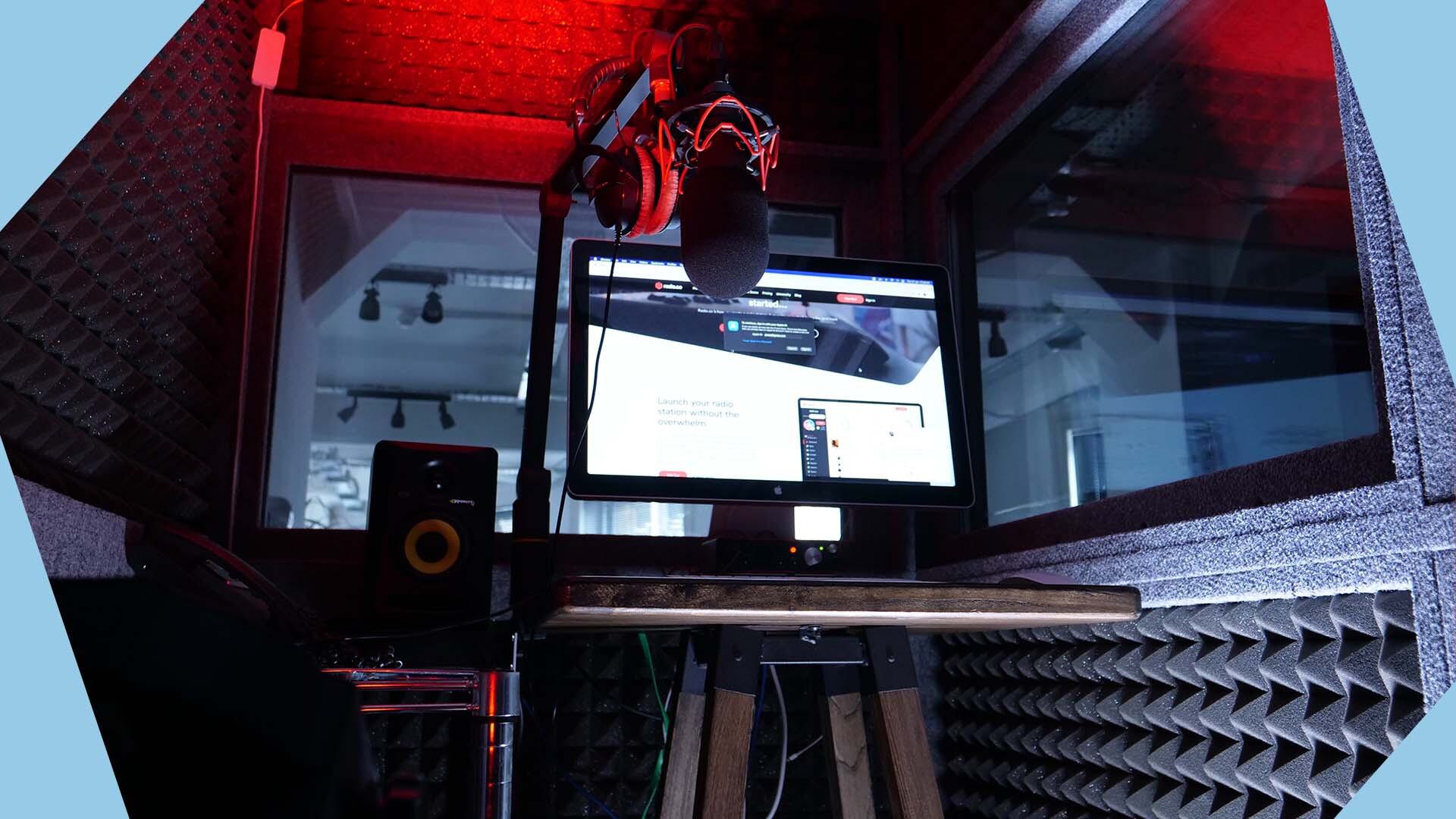Need advice? Let's talk.
Get straightforward guidance from your broadcasting partner. Schedule a call to chat with the team about your radio station.
Book DemoRadio SEO: Get More Listeners With Google
Grow your listeners by harnessing the power of radio SEO, the best way to get yourself noticed on search engines. Google's got you covered.
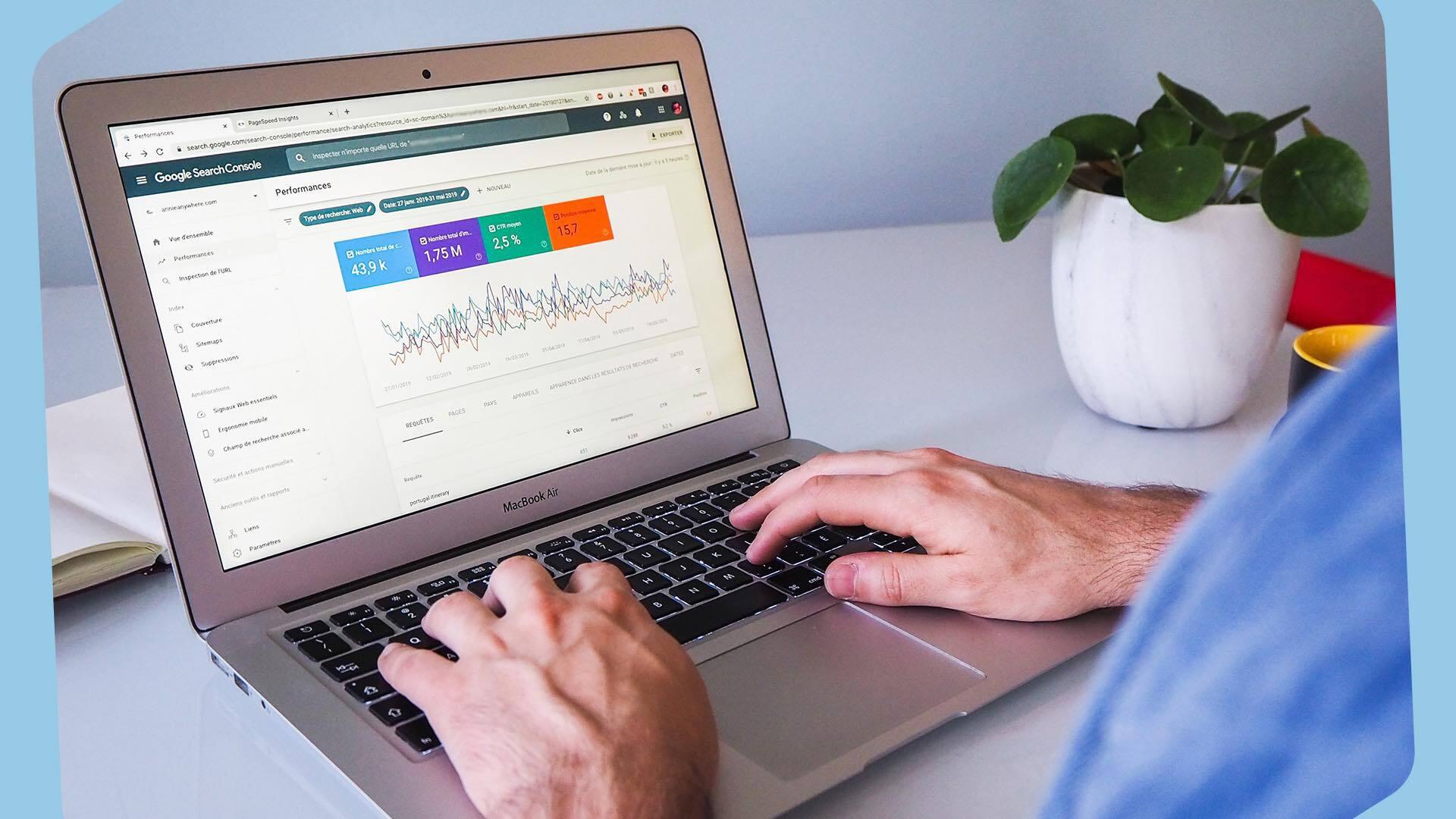
What does radio SEO have to do with growing your station's listeners? Well, more than you'd think. Google processes 99,000 search queries every second. That's 8.5 billion searches per day.
Wild statistics aside, SEO is much more than marketing mumbo-jumbo - it's the key to your radio station's growth. If you run an online radio station (or even a podcast), siphoning traffic to your website is your formula for success. That's why you've got to get to grips with Google. And fast (even if you've got the gift of the gab to rival Ryan Seacrest). Your station won't reach its full potential without getting on Google's good side. Your listeners, station site traffic, and social media following will all benefit from a solid radio SEO foundation.
What's Radio SEO? (And Why Should I Care?)
SEO stands for Search Engine Optimisation. Radio SEO is a way to leverage online search traffic to point listeners in your station's direction. In a nutshell:
- Content is available to Google, Bing, etc.
- Search engines rank your website's content.
- More people discover and tune into your station.
The key is to leave a breadcrumb trail to your content. Plus, if your website sells merchandising or you're a not-for-profit project needing donations, you're in the money. Web traffic can directly grow your business.

SEO is about building pages that rank on search engine results. The aim is to rank well, preferably on the first page. It's strategic optimisation that will boost your web presence tenfold. Broadcasters like the BBC and London Fields Radio have a good presence on search engines because they understand why radio websites matter. And so should you.
Google is the King (Queen & Jack) of Search
Google's algorithm can be a cruel mistress. Before you ask, no. You don't need to bother with Bing, Yahoo! or Ask Jeeves (RIP). At 8.5 billion searches per day, Google is the Big Cheese, and the first page is a coveted spot for your site to appear.
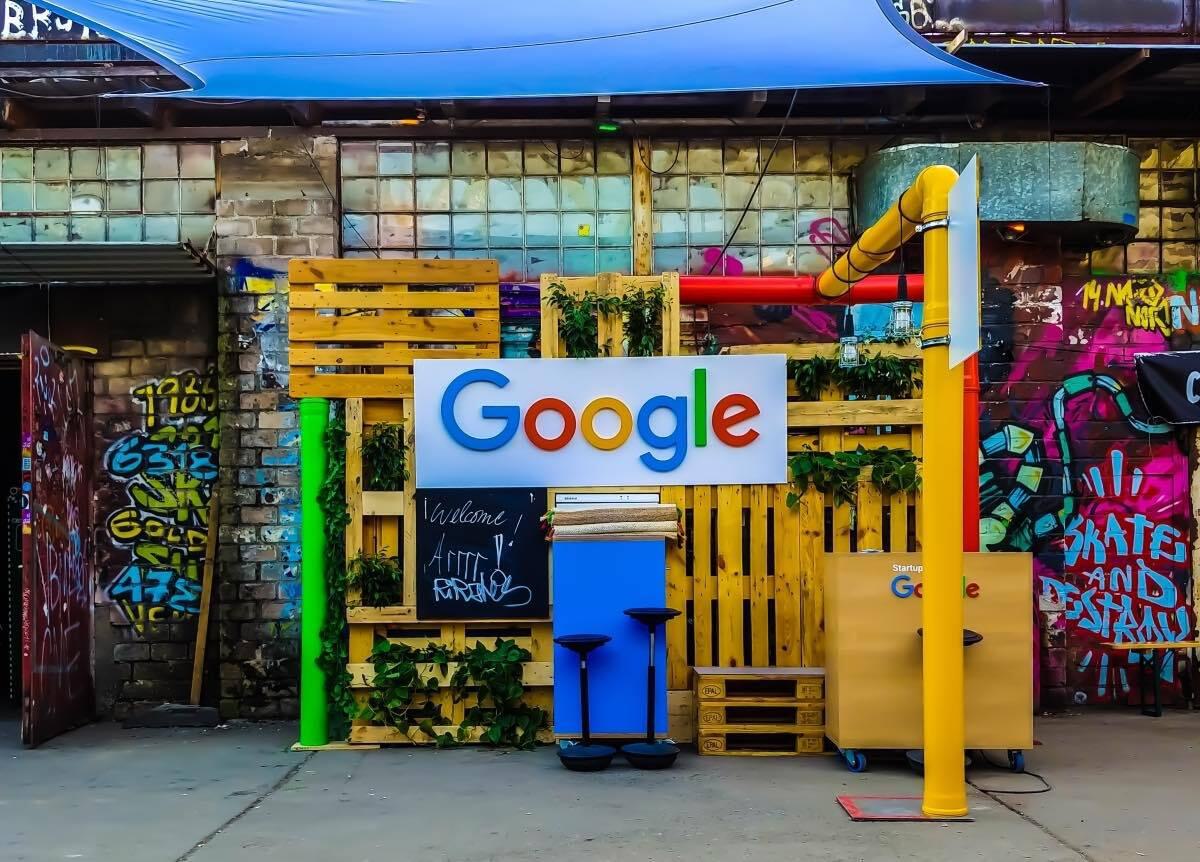
When you search online, Google tends to display the most helpful results at the top of the first page. The fastest-loading sites that tick all the optimisation boxes always reign supreme. Here's the 411, folks:
- Google do NOT like sites that aren't mobile-friendly.
- SEO is always changing with regular updates from Google.
- Regularly updating/changing your site can boost rankings.
- Page experience MUST be good so users will stick around.
- If two pages have great content, Google ranks the better performer first (annoyingly).
- Google Search Central helps identify and fix problems.
And that's just scratching the surface. But tools like Google Search Console are the way to go for optimising your website.
Keywords Are Anchor Points for Google
In saying that, keywords are a good starting point. SEO involves concentrating on specific keywords to improve your ranking.
Keywords are like anchor points for Google. The search giant cares about useful content-rich websites that offer value. Keywords act as the doorway for Google's bots to crawl and then serve your content on SERPs (Search Engine Results Pages).
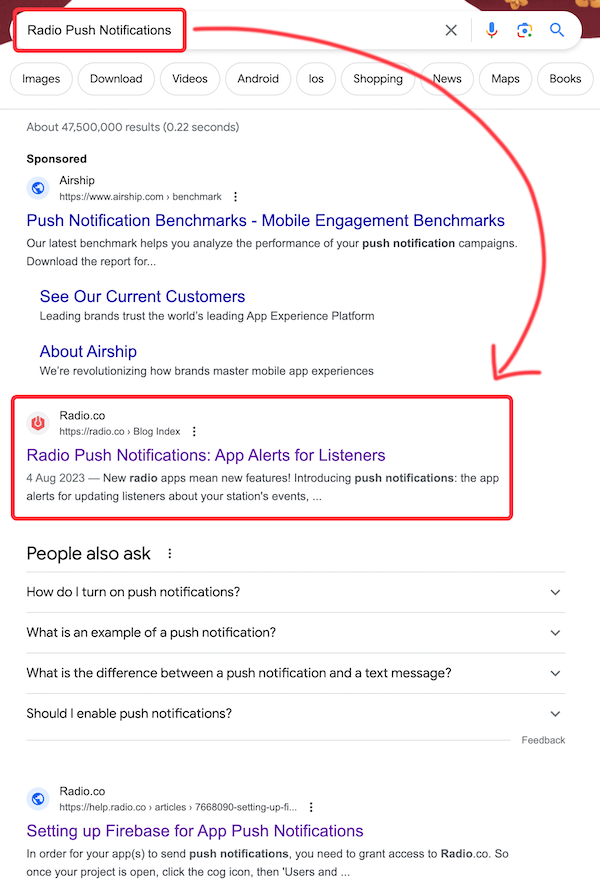
Serving up content on specific topics that knit closely with your station is key. Local stations with a wealth of history could focus on their heritage with famous landmarks and people. Pages or articles that offer a well-rounded cache of knowledge will draw in people (and make Google happy).
10 Fast Facts About (Radio) SEO
Search engines are complicated beasts. Entire industries are built around helping businesses optimise their presence online. Even our sister brand Cue offers SEO insight. So chances of you getting everything correct from the starting gate is challenging. Take advantage of a cheat sheet with top facts that'll help you get to grips with (radio) SEO.
10. Backlinks Boost Your Website's Authority
Reputable sources add weight to your website or app. Kind of like being recommended a good book - you'd pay more attention to a suggestion from a friend or celebrity rather than a stranger off the street.
Backlinks are links from other websites to your own. Search engines rank domains. Old active websites, content-rich brands, and news outlets are signals Google prefer. So more links from well-regarded sources will boost your own domain ranking.
9. Google's Search Algorithm Updates Constantly
The world of SEO shifts constantly like the sea on a choppy night. Best practices change, so what might be considered good one day won't be the next.
But search engines provide report updates so you're always in the know. Google Search Central offer a robust archive of what's changed, why, and how you can adapt. Although overwhelming at first, keeping 'skin in the game' in terms of the radio SEO of things is essential to thriving and getting discovered on SERPs.
8. Dynamic Websites Rank Better
Nowadays, people access content on different screen sizes. Monitors, laptops, tablets, and mobile phones display your site's content. Pages should dynamically shift to fit any screen size. Those that don't get marked down by Google.
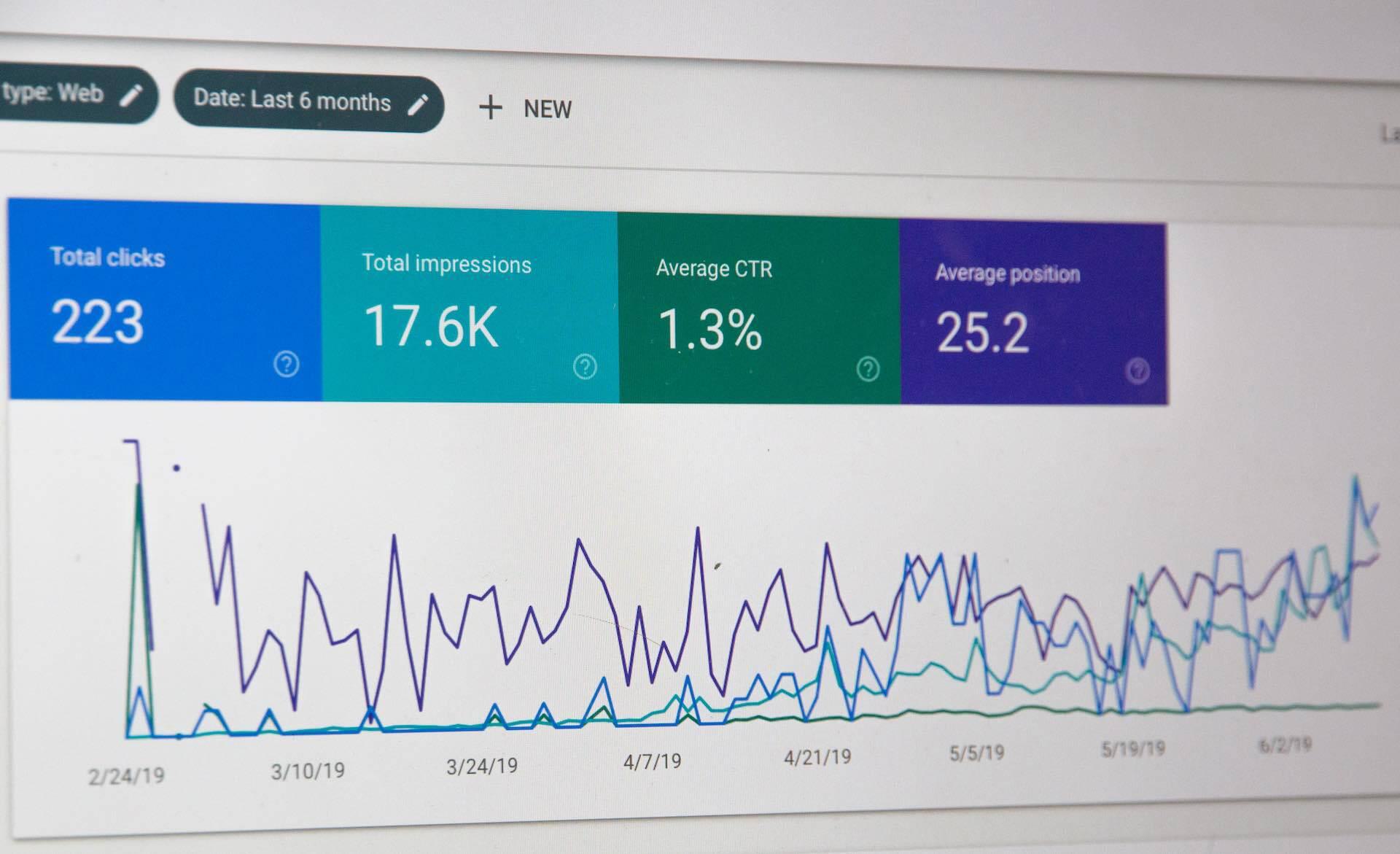
The good news? Most modern website builders offer dynamic templates, so creating pages is incredibly easy without touching a single line of code.
7. Speed Affects Search Rankings
40% of visitors will leave a website if it takes longer than 3 seconds to load, according to a Statista Survey.
Similar to dynamic content, speed plays a vital role in how search engines choose and serve your website. Google PageSpeed Insights offers the ability to check your site's speed on both desktop and mobile.
6. Social Media (Mostly) Doesn't Impact SEO
Social media platforms like Facebook and X (formally known as Twitter) don't directly impact your website's performance. Viral posts translate well within their respective platforms, but rarely impact search engines.
In saying that, social media platforms aren't echo chambers. Whilst likes and shares tie into their social ecosystem, backlinks from posts and embeds do have a positive impact on your website's search visibility.
5. Local SEO Matters
The internet is vast. And competition from every corner of the globe hurts your visibility. That's why Google serves up content from your local area.
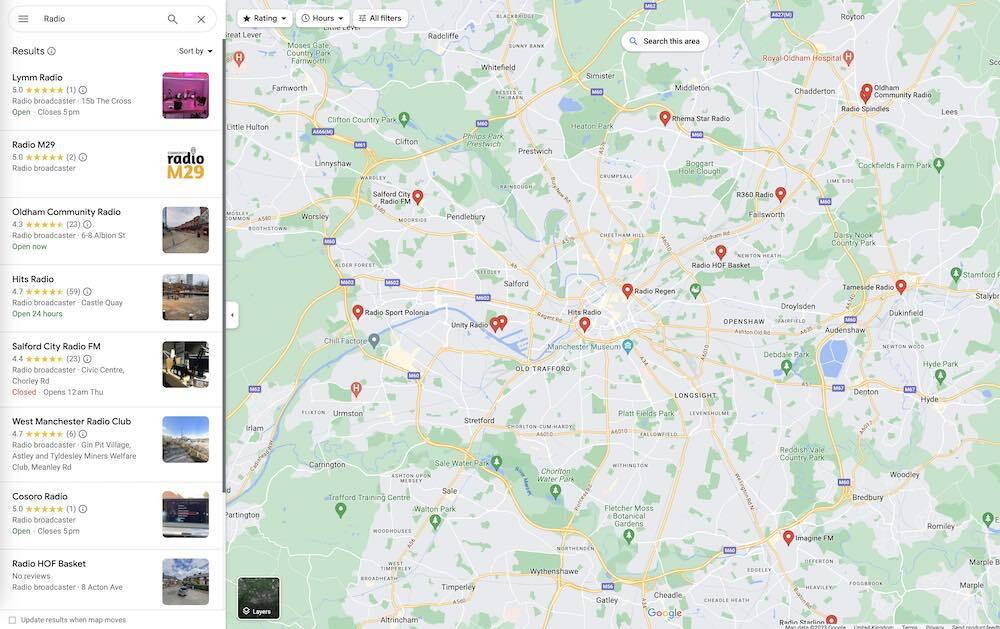
Searching for 'radio' on Google Maps brings back stations that serve the region. The same applies to all types of brands and businesses across search engine results. The more specific and niche to an area, the better.
4. Organic Results Outshine Paid Ads
Organic results are crawled by search engines to serve up the best content. Paid ads jump the queue, getting to the top spot at a cost.
Whilst organic results earn their place through optimising content through SEO, relevancy, and credibility (often over a long period of time), paid ads don't. So organic often outshines paid to offer better value content. In saying that, there's no harm in implementing both methods for maximum impact.
3. Substance Offers Better Value
Google has shifted focus to people-first content. Instead of heavy-handed SEO content geared at serving search engines like Google first, content instead should cater to those that actually read, share, and return to pages.
In real terms, content should solve a problem. Red flags include:
- Automated content generation written by AI 🚩
- Content hasn't delivered on a promise 🚩
- Summarising what others have already said 🚩
- People leave dissatisfied and have to find answers elsewhere 🚩
For example, covering a local news story with exclusive content and interviews would prove valuable - as long as it's helpful, reliable, and people-first content that follows Google's content guidelines.
2. Newsworthy Content Ranks Well
Speak of the devil. Talking points with little to no competition plays well with Google. Search engines are always looking to deliver the most relevant content to meet search queries. Newsworthy content like local stories, product launches, and pretty much anything new will scratch Google's itch.
1. Keywords Only Go So Far
'Keyword stuffing' is a method to overload a page with a particular set of keywords. Considered a black hat approach, Google doesn't like when websites game their system. So search engines have gotten smarter.
Nowadays, keywords take a back seat. Focus has shifted to valuable content and good user experiences (as Google Core Web Vitals heavily hints).
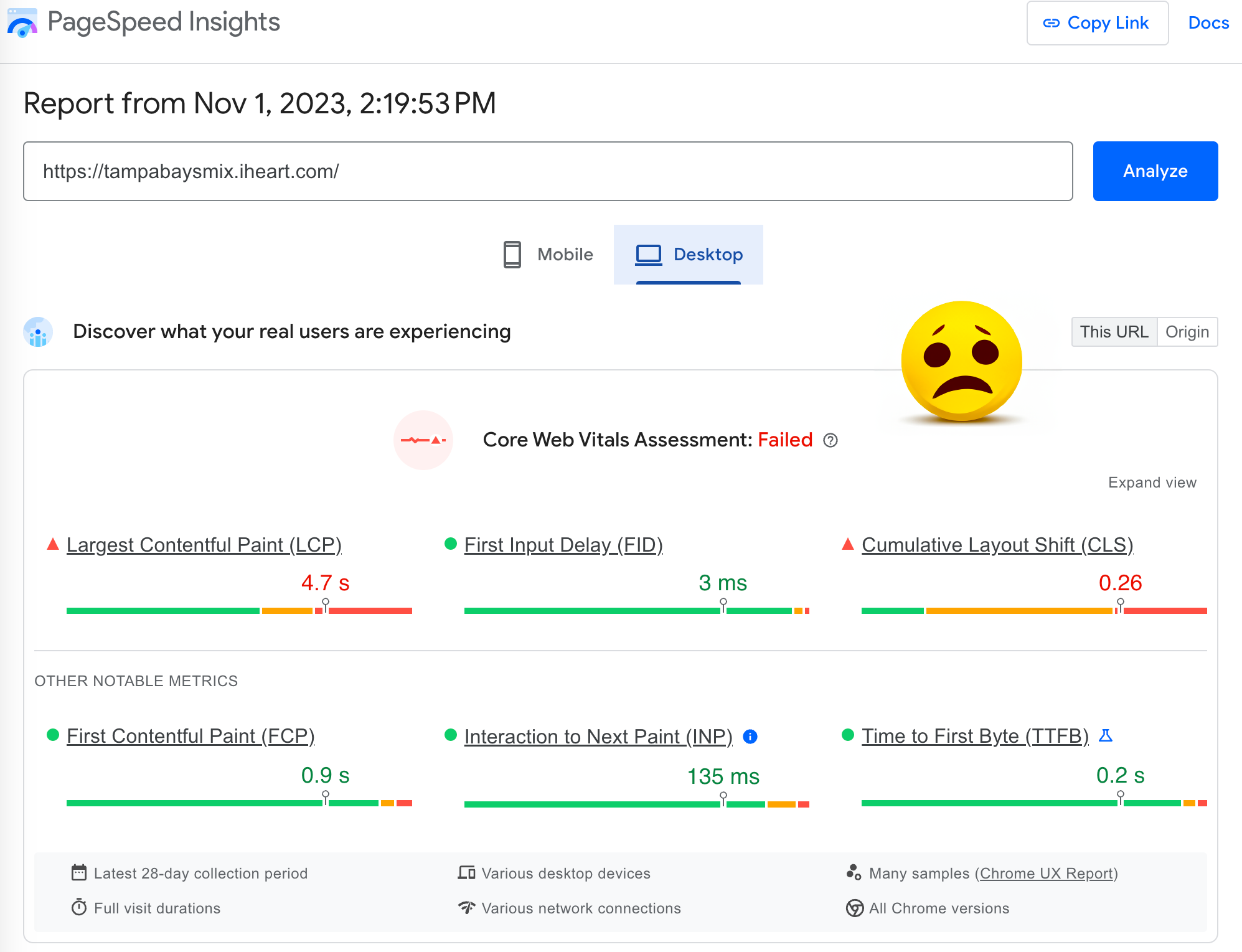
How to Boost Traffic with SEO
Search engines (and people for that matter) love optimised content. But for Google to deliver your content to the top spot on search results, you need to follow best practices. By no means a comprehensive list, use the following as a starting point to boosting your website's traffic.
- Target (relevant) keywords: Identify and build content around phrases people are searching for (Moz).
- Improve load times: Deliver content quickly so people can discover your pages without hanging around (Google's CWV).
- Mimic competitors: Stations in the top spot rank well for a reason, so emulate the top-performing sites (Semrush).
- Structure pages: Organise content methodically with descriptive headings and easily digestible layout (W3C).
- Short vs long content: Choose your content's length. But longer content usually increases dwell time (Wordstream).
- Optimise images: High-quality, descriptive alt text and file names, and small file sizes win over Google (Optimizilla).
- Build backlinks: Create a breadcrumb trail from other sites to boost your own site's authority (Ahrefs).
- Link internally: Help search engines (and humans) find relevant content with structured links to your other pages (Google Search Console).
SEO is time-consuming. So use tools like Ahrefs to save you time, offer in-depth insight, and direct you down the right path to boosting traffic.
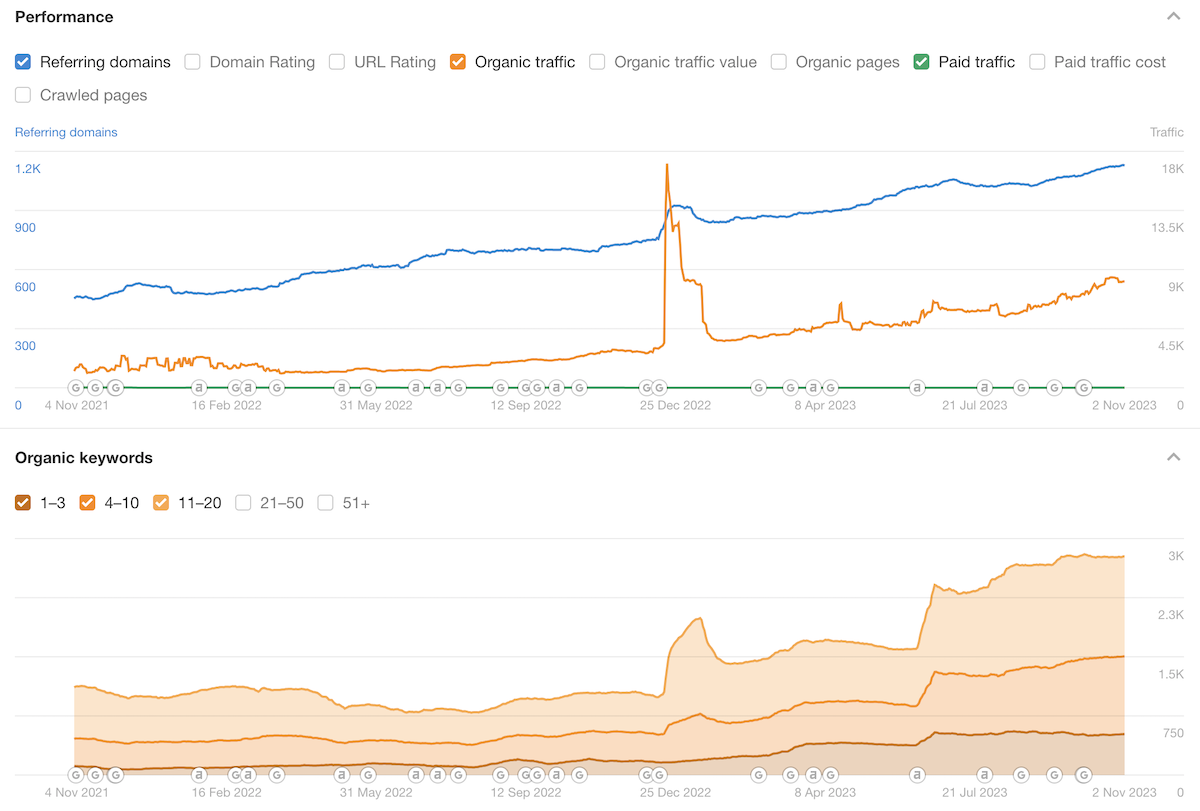
People Also Ask (About Radio SEO)
SEO is about getting found. Radio SEO is the same thing, but optimising a station's content for listener discoverability - whether that's live or on-demand. But the world of SEO is vast, so here are some common questions answered.
Why do I need radio SEO?
SEO is a key part of any radio station's marketing strategy to get more listeners.
Radio is about reaching as many people as possible. SEO is a way to funnel those people searching online to drive traffic to your website, and ultimately to your radio station.
How does live radio work with SEO?
Radio streams have to live somewhere online to get discovered by listeners. Dedicated pages with embedded players, direct URL links, and mobile apps are touchpoints for search engines to find and serve up your latest broadcasts.
Going one step further, post-live broadcasts can be turned into on-demand shows for catchups. If structured correctly, Google will lay breadcrumb trails to your latest content.
Do I need a website for my station?
Yes. A website is your radio station's home so you can get discovered online (just imagine sending a letter to a place without an address).
A website rich in content helps listeners discover your station on Google. Presenter lineups, weekly schedules, and local news that tie into your station all feed into search engines so they can serve up your content to visitors.
Where do I start with radio SEO?
A well-structured website with clear touchpoints (listen, schedule, playlist, news, etc) is a good starting point.
But just like a red velvet cake, websites are layered. Once you've got a foundation, optimise your content from the tips mentioned in this guide to help build upwards.
What if I don't have the time or skills?
Optimising your content is challenging. However, outsourcing can speed up the process (but at a cost).
Similar to building a branded radio app, we can help. Contact us for sound advice on all things marketing and discoverability.
Final Thoughts
Radio SEO can help grow your listeners, but keeping on top of your ranking is challenging. As long as you're always considering accessibility, site speed, and keywords, you're on the right track. And an SEO mindset can be applied to every aspect of your station's website. Domain name, alt text, design choices... the list goes on. Eventually, growth will happen organically over time.

Do you have any tips on how to get more radio listeners with Google? Is your podcast thriving thanks to SEO? Share what's worked for you in the comments or across our socials @radiodotco.

